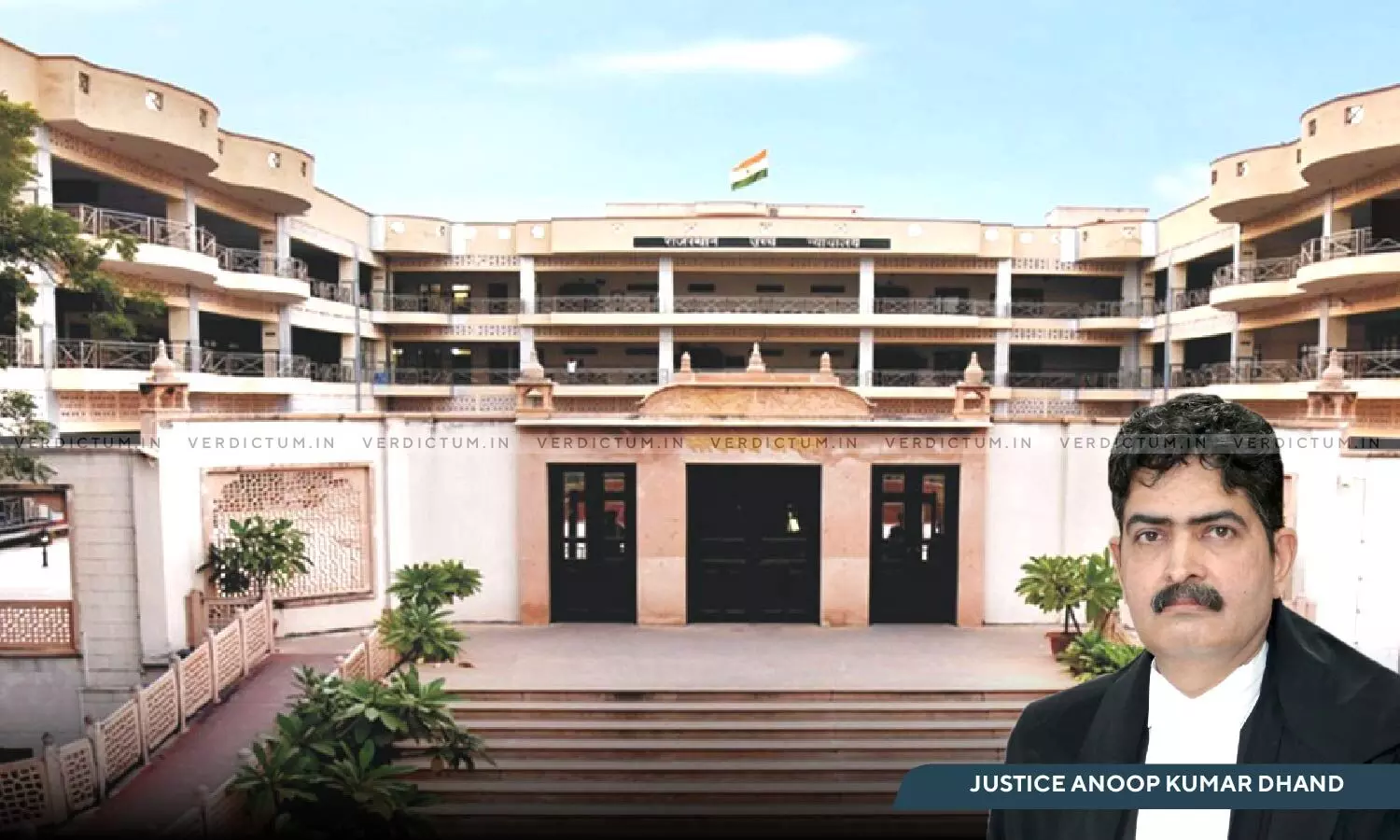
Justice Anoop Kumar Dhand, Rajasthan High Court
Female Tribal Entitled To Parity With Male Tribal In Intestate Succession Matters: Allahabad High Court Suggests Amendment Of Section 2(2) HSA
 |
|The Allahabad High Court urged that to deny equal rights to the daughters belonging to the Tribal communities, even after more than seven decades of independence, is manifestly unjustified.
The Allahabad High Court has suggested amendment to Section 22 of the Hindu Succession Act which excludes women belonging to Schedule Tribes from staking claim in ancestral property.
The Court was considering a Writ Petition against an order passed by Board of Revenue whereby the Revision Petition of the Respondent against dismissal of Application for rejection of the Plaint was allowed.
The single bench of Justice Anoop Kumar Dhand observed, "....When daughters belonging to non-Scheduled Tribe communities are entitled to equal share in their father’s property, there is no reason & justification for denying the same right to the daughters of Scheduled Tribe community. Female Tribal is entitled to parity with Male Tribal in the matters of intestate succession. However, the provisions contained under Section 2(2) of the Act of 1956 are operating as rider/barrier in the way of Female Tribal from asserting their rights in their father’s property."
The Petitioner was represented by Advocate Prahlad Sharma while the Respondent was represented by Advocate Bajrang Lal Choudhary.
Facts of the Case
Counsel for the Petitioner submitted that the Petitioner belongs to Meena Community and is only daughter with no brother. Her father executed a gift deed in favour of the Defendant-Respondent No. 2. which was rejected by way of fling a Civil Suit before the Court of Additional District Judge wherein an Application was submitted by the Respondent under Order 7 Rule 11 CPC seeking rejection of the suit on the technical count that in the absence of a prior declaration in favour of the Petitioner, the Civil Suit with regard to cancellation of gift deed, is not maintainable.
The Respondent submitted an Application under Order 7 Rule 11 CPC seeking rejection of the plaint in the light of the provisions contained under Section 2(2) of the Hindu Succession Act, 1956 on the ground that the provisions of the Act of 1956 are not applicable to the members of Scheduled Tribes, as defined under Clause (25) of Article 366 of the Constitution of India, unless a notification to this effect is issued by the Central Government in the Official Gazette.
The Counsel referred to Supreme Court's ruling in Tirth Kumar and Ors. Vs. Dadu Ram and Ors. and Ram Charan and Ors. Vs. Sukhram and Ors. to aver that that no discrimination can be caused against the daughters belonging to Schedule Tribes Category and such discrimination is in violation of the Article 15 of the Constitution of India and, therefore, the suit seeking declaration of khatedari rights in the ancestral property, submitted by the Petitioner before the SDO was maintainable, which has been erroneously rejected by the Board.
On the other hand, Counsel for the Respondents submitted that Section 2(2) of the Act of 1956 expressly bars the application of the Hindu Succession Act upon the members of Scheduled Tribes. He cited Kamla Neti (Dead) Vs. the Special Land Acquisition Officer and Ors. (2023) wherein it was held that unless a separate notification is issued by the Central Government in the Official Gazette, female members of Schedule Tribes are not entitled to claim succession rights in the ancestral property. Reference was also made to Ahmedabad Women Action Group (AWAG) and Ors. Vs. Union of India (1997) wherein the Apex Court held the above provisions to be intra vires and not ultra vires and the challenge by the Ahmedabad Women Action Group was rejected.
Reasoning By Court
The Court at the outset mentioned that Apex Court has taken note of the fact that the provisions contained under Section 2(2) of the Act of 1956 are required to be looked into by the State Government in as much as a direction was issued by the Apex Court in the case of Kamla Neti (Supra), which deals with the provisions of the Hindu Succession Act, to bring suitable amendments so as to ensure right of equality, guaranteed under the Articles 15 and 21 of the Constitution of India, are not infringed. The view taken in the case of Trith Kumar (Supra) was further reiterated in the successive judgment in the case of Ram Charan (supra).
"Keeping in view the mandate laid down by the Hon’ble Apex Court in the case of Tirth Kumar (supra) and Ram Charan (supra), this Court finds no valid reason to take a different view. Consequently, the impugned judgment passed by the Board is not sustainable in the eyes of law and the same is liable to be and is hereby quashed and set aside", the Court observed.
It urged that to deny equal rights to the daughters belonging to the Tribal communities, even after more than seven decades of independence, is manifestly unjustified.
"Hence, it is the right time and high time for the Union of India to revisit the provisions contained under Section 2(2) of the Act of 1956, and if deemed necessary, the provisions of the Act of 1956 be amended to safeguard and promote the rights of Female Members of the Scheduled Tribe community", the Court remarked.
Cause Title: Manni Devi vs. Rama Devi
Appearances:
Petitioner- Advocate Prahlad Sharma, Advocate Khem Singh, Advocate Ram Prasad Sharma, Advocate Lakhan Sharma
Respondent- Advocate Bajrang Lal Choudhary
Click here to read/ download Order